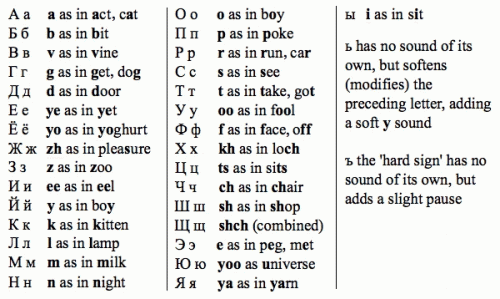- Joined
- 25 June 2009
- Messages
- 14,669
- Reaction score
- 5,848
For those not familiar with Eastern European languages, deciphering surnames and transcribing them can be a real pain...
I won't go into the complete alphabets here, just the consonant sounds that really pose a problem to Westerners:
Ц (Russian, etc.) = C (Czech, etc.) = C (Polish) = Z (German) = TS (English) = TS (French)
Ш (Russian, etc.) = Š (Czech, etc.) = SZ (Polish) = SCH (German) = SH (English) = CH (French)
Ч (Russian, etc.) = Č (Czech, etc.) = CZ (Polish) = TSCH (German) = CH (English) = TCH (French)
Щ (Russian, etc.) = combination of the above two sounds
Ж (Russian, etc.) = Ž (Czech, etc.) = Ź (Polish) = ZH (English) = J (French)
В (Russian, etc.) = W (Czech, etc.) = W (Polish) = W (German) = V (English) = V (French)
Ř (Czech, etc.) = no equivalent? (sound between R and Ž)
J (Czech, etc.) = J (Polish) = J (German) = Y (English) = Y (French) *
* NOTE: There is no Russian equivalent of this letter, only in "double" sounds:
Я = JA = YA
Е = JE = YE
Ю = JU = YOU
Many Western journalists have misinterpreted Eastern names and some mistakes have stuck. Also, it's difficult for a company to change its logos and impossible to adapt its name to each different country. That's why lots of people pronounce Škoda as "Skoda" (instead of Shkoda) or "Mielec" as "Mieleck" (instead of Mielets). In general, one can say that the tendency is to avoid modifying the spelling for names written with the same signs as ours (at the risk of completely ruining the original pronunciation).
Examples:
- the Serbo-croat Rogožarski becomes "Rogozharski" in English and "Rogojarski" in French.
- the Serbo-croat Žučenko becomes "Zhuchenko" in English and "Joutchenko" in French.
- the Russian Лавочкин becomes "Lavochkin" in English and "Lavotchkine" in French.
- the Russian Мясищев becomes "Myasishchev" in English and "Myassichtchev" in French (though these ought to end with "-eff", logically).
I won't go into the complete alphabets here, just the consonant sounds that really pose a problem to Westerners:
Ц (Russian, etc.) = C (Czech, etc.) = C (Polish) = Z (German) = TS (English) = TS (French)
Ш (Russian, etc.) = Š (Czech, etc.) = SZ (Polish) = SCH (German) = SH (English) = CH (French)
Ч (Russian, etc.) = Č (Czech, etc.) = CZ (Polish) = TSCH (German) = CH (English) = TCH (French)
Щ (Russian, etc.) = combination of the above two sounds
Ж (Russian, etc.) = Ž (Czech, etc.) = Ź (Polish) = ZH (English) = J (French)
В (Russian, etc.) = W (Czech, etc.) = W (Polish) = W (German) = V (English) = V (French)
Ř (Czech, etc.) = no equivalent? (sound between R and Ž)
J (Czech, etc.) = J (Polish) = J (German) = Y (English) = Y (French) *
* NOTE: There is no Russian equivalent of this letter, only in "double" sounds:
Я = JA = YA
Е = JE = YE
Ю = JU = YOU
Many Western journalists have misinterpreted Eastern names and some mistakes have stuck. Also, it's difficult for a company to change its logos and impossible to adapt its name to each different country. That's why lots of people pronounce Škoda as "Skoda" (instead of Shkoda) or "Mielec" as "Mieleck" (instead of Mielets). In general, one can say that the tendency is to avoid modifying the spelling for names written with the same signs as ours (at the risk of completely ruining the original pronunciation).
Examples:
- the Serbo-croat Rogožarski becomes "Rogozharski" in English and "Rogojarski" in French.
- the Serbo-croat Žučenko becomes "Zhuchenko" in English and "Joutchenko" in French.
- the Russian Лавочкин becomes "Lavochkin" in English and "Lavotchkine" in French.
- the Russian Мясищев becomes "Myasishchev" in English and "Myassichtchev" in French (though these ought to end with "-eff", logically).
Last edited:

